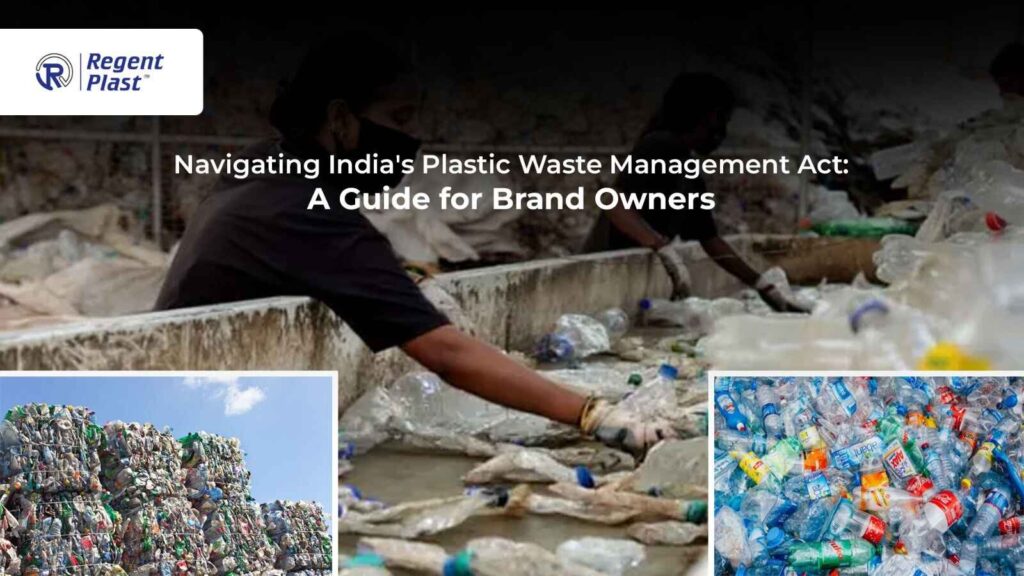Navigating India’s Plastic Waste Management Act: A Guide for Brand Owners

In recent times, India has made substantial progress in, the matter of how to effectively tackle a serious problem of plastic garbage is addressed. India now has the Plastic Waste Management Act (PWM) that aims at efficient management of plastic production, use, and beyond. The legislation seeks to protect the environment and ensure sustainability goals are achieved. For the local brand owners working in the recent Indian laws, it is crucial to understand and comply with this legislation, as it stands as an optimistic road ahead to safe, legitimate, and environmentally friendly business operations.
Understanding the Plastic Waste Management Act
By virtue of the Plastic Waste Management policy, which is a way of controlling and significantly reducing the harmful influence of plastic on the environment, the Plastic Waste Management Act sets forth extensive rules that have to be followed by manufacturers. It talks about pillars of responsibility for brand owners of plastic products, starting from the production stage up to the disposal stage.
Time Line as of 14th March 2024 (Subject to amendments/ revisions)

Navigating India’s Plastic Waste Management Act: A Guide for Brand Owners
The specific details outlined in the act need to be familiarized by the brand owners with these particular regulations. These rules cover the subject matter from the source materials used to extended producer responsibility (EPR), waste collection and segregation to the penalties for non-compliance. With these regulations being seen, it not only sets a legal framework but also assists in environmental favours.

Environmental Implications and Responsibilities
There are consequential effects of plastic waste on habitats, biodiversity and the health of humans. Brand owners that adhere to the obligations of the Plastic Waste Management Act create a reliable basis for mitigating the indicated environmental negative impacts. Waste management is much more responsible if everyone helps out by recycling and reducing the use of disposal plastic. As a result, the load that landfills and natural habitats bear would be much lighter.

Promoting Recycling and Sustainability
Recycling based on practical application (plastic waste management) is the lynchpin of ‘successful’ plastic waste management systems. By making recycling materials in their packaging and products a priority, brand owners can create the environment to make meaningful contributions to environmentally sustainable practices. Carrying out the reusing technique, specifically by setting up programs to return products besides product stewardship, results in a circular economy where the raw material is limited and products are reused.
The Plastic Waste Management Act to some extent have established the framework for dealing with environmentally deadly plastic but it will be the combined efforts by the concerned government agencies and other private sector stakeholders and citizens to make the Act an effective instrument fighting off the plastic menace. The brand owners might find their access hampered by infrastructural delays, consumer behaviour transformation, and even administrative loopholes. Although it is challenging due to logistics and people similarities or differences, green networking can be achieved through proactive involvement and investment in waste management infrastructure.
Towards a Circular Economy
An efficient circular economy model, in which resources stay in circulation for as long as possible through recycling and regeneration, can perfectly fit the goals of our nation’s Plastic Waste Management Act. Brand managers can be the leaders of sustainability by designing products for long life, multiple times of use and recycling, as well. Moreover, industries to employ the idea of a loop in plastic consumption reduce the burden on resources and create an appealing, more sustainable and productive economy. Regent Plast is a front-runner in manufacturing HDPE bottles out of recycled plastics using the innovative technology of a multi-layer process.

Conclusion
In India, the Plastic Waste Management Act compels brand owners to be keen to be aware and act stirringly in a socially responsible manner. Through adherence to regulations, promotion of recycling, and incorporation of sustainability measures, brand owners are thus becoming an integral part of the solution to the plastic pollution problem by more than just complying with the relevant environmental laws; they are the instruments of the future.

